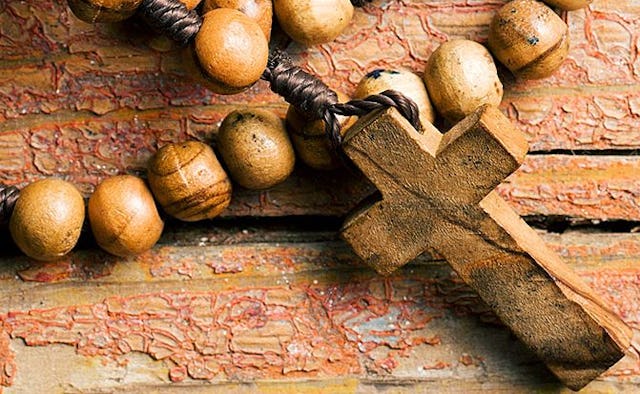How to Talk to Your Kids About God When You're Not Religious

© Brown Paper Press
Answering the Big Questions
What you choose to share about religion, and in what way, will give your kid certain coordinates from which to form an opinion. This is part of why being honest with kids about what you believe is essential. So before you start discussing faith issues, think through some basic questions on your own: Do you believe in God? Do you believe in an afterlife? Do you believe humanity has a purpose? Are you satisfied with your beliefs?
Is the way you answer these questions for yourself different than how you would answer them for your child? And, if so, why?
When we hide beliefs from our kids, we may think we are protecting our kids from confusion, hurt, or undue influence; but far more often we are protecting ourselves from awkwardness, guilt, or embarrassment. And, in doing so, we risk cracking the foundation of a strong, trusting relationship with the people who matter to us the most: our children.
A friend’s son once surprised her by asking if it was true that “God died on the cross.” She clarified that it was Jesus who “died on a cross,” and that some people believe Jesus was the son of God. Her son then asked if she believed that. “I don’t want to tell you what I believe,” she said, “because I want you to make up your own mind.”
Indoctrination is not a byproduct of simple honesty or exposure. Telling your child what you believe, or exposing them to what others believe, will not indoctrinate them. Instead, it will show your willingness to be open and forthcoming. It will show them that there is no shame in sharing one’s beliefs with others. And it will show them that yours is a household that talks openly and respectfully about tough subjects—including faith.
Below are some ideas about how you could answer the more common childhood questions. Just be sure that, before you use these answers, you think through them on your own and make sure they feel right to you. There is nothing to memorize here, so play this your own way. Tweak as necessary. Ask questions yourself. Show your kid you are interested in what she thinks. Admit you don’t know everything. And, remember, brevity is your friend.
What is God?
“God is a word that a lot of people use to mean different things. Many people think of God as an invisible being who made everything in the world. Some people think God watches over them from the sky and helps them to be good. Some people think God is just a part of our imaginations, like a dream.”
What is religion?
“Religion is a collections of beliefs, as well as views about how people ought to behave. Some religions involve God or gods, and some don’t. Religion has been around for thousands of years. Many religions have gone away with time, and many others have kept going. Some religions were formed very recently.”
Do I have to believe in God to be good?
“No. No one needs God to be a good person, just as they don’t need God to feel comfort or to have a full and satisfying life. Being a good person means being kind and treating others the way you want to be treated.”
Are some religions bad?
“Religion isn’t bad or good, although it can seem that way sometimes. Some people do good things for their religions; and some people do bad things for their religions. If you are mean to people just because they are different from you—because of religion or for any reason—that is bad. Hurting people is wrong, whether you are religious or not.”
Why are we talking about this?
“Religion is something that matters to a lot of people. I talk to you about it so that you can make up your own mind about what you believe, and because I want you to be able to understand and appreciate all the different people you are going to meet during your life. Knowledge, awareness, and curiosity are traits that tend to invite new and positive experiences. In short, I think teaching you a bit about religion will help make you a smarter, friendlier, and happier person.”
Can I talk about my beliefs in school?
“Of course. You can talk about your beliefs anywhere. But you should know that people often feel strongly about their beliefs—so strongly that it can lead to disagreements and hurt feelings, which is why you probably won’t learn much about it in school and why some people encourage children not to talk about it on the playground.”
Where did we come from?
“The entire universe—everything we see (and what we don’t) started 13.8 billion years ago. The universe has been expanding ever since, and is still expanding. To this day, scientists are still trying to figure out how it all happened, and why. In the meantime, some people believe God created the universe, while others believe it happened by itself.”
This article was originally published on